Facts on Good Cholesterol Levels: Why High HDL Is Our Friend and High LDL Is Our Enemy
If I say ‘good cholesterol levels‘, what do you feel? Well, if you are anything like I used to be, the very word cholesterol will strike fear in your heart – after all isn’t that the thing that everyone you know is always on about reducing.
Be it Facebook statuses, advertisements, people in doctor’s surgeries or your next-door neighbor, all you hear when it comes to the word “cholesterol” is how reducing it is really important.
However, as well as bad cholesterol, there is also such a thing as good cholesterol levels – meaning assessing your actual cholesterol level is not the exact science you may think it is.
But what exactly IS cholesterol?
Cholesterol Is a Less-Than-Attractive Fatty Substance Found in a Person’s Blood
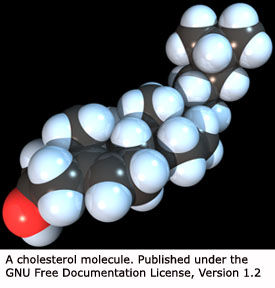 While it may not sound particularly nice, cholesterol is manufactured by the body for a very important reason.
While it may not sound particularly nice, cholesterol is manufactured by the body for a very important reason.
In fact, cholesterol influences the function of every single cell in a person’s body.
However, people whose cholesterol numbers are higher than average, are at an automatically higher risk of developing heart disease and other serious conditions.
The Tricky Science of Cholesterol: Good Cholesterol vs. Bad Cholesterol
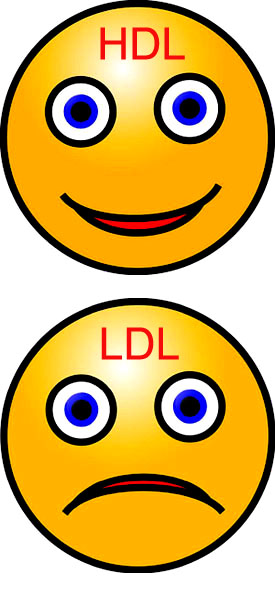 Cholesterol travels around the body by attaching itself to certain proteins, this combination is known as Proteins.
Cholesterol travels around the body by attaching itself to certain proteins, this combination is known as Proteins.
Just to confuse things even further there are two different types of Proteins:
HDL – Your HDL cholesterol levels refers to the level of good cholesterol in your body.
LDL – Your LDL cholesterol level refers to the level of bad cholesterol in your body.
The time to become concerned is when your good cholesterol level are significantly lower than your bad cholesterol levels, as this can pose risk of several medical conditions including, diabetes and cardiovascular disease.
Good Cholesterol Paves the Way for Optimized Cell Function and Maintaining a Healthy Heart and Brain
It is believed by certain doctors and dietary specialists that people who undergo certain therapies to increase their HDL cholesterol level, can actually boost their good cholesterol levels.
Oddly enough, a decent level of good cholesterol has the opposite effect of high cholesterol in that it potentially reduces a person’s risk of heart disease and other serious illness.
Good cholesterol is also vital to proper cell function, in particular maintaining a healthy heart and brain.
Poor Diets but also Unfair Genetics Are the Causes of High LDL Levels
People suffer with high cholesterol for a couple of reasons, although one is more common than the other.
- Diet – According to the Mayo Clinic, individuals who have a diet high in saturated fats and other poor food choices are more likely to suffer from high cholesterol numbers.
- Genetics – For some people, it doesn’t matter what type of diet they follow, they will experience high cholesterol because of an inherited condition known as Familial Hyperlipidaemia.
If members of your family have been suffering from high cholesterol, it is always worth asking your doctor to check your cholesterol levels in case you have inherited the above disorder.
Going Beyond the Traditional Cholesterol Myths
- As with most things people don’t understand, there are plenty of myths surrounding cholesterol, here are some of the most common:
- Americans have the highest cholesterol levels in the world – Maybe it is the liking for burgers and all you can eat buffets that have convinced people that Americans have the highest cholesterol in the world.
This is in fact not true, and it is people from Uruguay and Libya that suffer from the highest cholesterol numbers.
- Eggs are bad for you – The American Heart Association recommends the average individual has no more than 300 milligrams of cholesterol a day. This figure is designed to maintain good cholesterol levels, without increasing a person’s overall cholesterol level.
While it is true that eggs are high in cholesterol, they are not nearly as bad for you as people make out. In fact, eggs are an excellent source of protein, which can help individuals maintain their good cholesterol levels.
- High Cholesterol Does Not Affect Children – Many individuals seem to think that high cholesterol is strictly reserved for those people over a certain age.
However, increases in technology and a more sedentary lifestyle than ever more, now means that children face just the same risk as adults when it comes to high cholesterol.
Research completed by the American Heart Association revealed that many of the adults suffering from cholesterol-related diseases had suffered from high cholesterol as a child.
So worrying is the problem that the American Academy of paediatrics recently released guidelines explaining how parents could maintain their child’s good cholesterol levels, while reducing high LDL cholesterol levels.
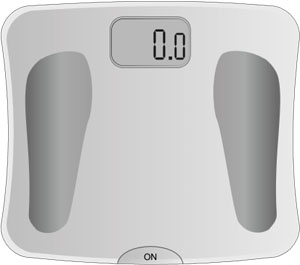 According to the Centers for Disease Control and Prevention, around 70 percent of children who suffered from weight issues were already at a serious risk from at least one cardiovascular disease.
According to the Centers for Disease Control and Prevention, around 70 percent of children who suffered from weight issues were already at a serious risk from at least one cardiovascular disease.The American Heart Association believes cholesterol testing should start on children as young as two-years of age, in order to give those at risk a chance to raise their good cholesterol levels.
Children should also take part in at least 60-minutes of physical exercise per day, in order to maintain a healthy weight and reduce the risk of high cholesterol numbers.
Portion control when your child is eating their main meals is also just as important as the food you give them.
This will help them maintain a healthy weight, reducing their risk of obesity and in turn, high cholesterol.
- Misleading Packaging – Most people will see that a food product contains zero grams of cholesterol and assume it is “heart healthy”. However, the cholesterol referred to on the nutritional packing of food is known as dietary cholesterol, which is not as bad as the cholesterol found in saturated and trans fats.
The Recommended Cholesterol Levels
According to the Mayo Clinic, individuals should aim for a cholesterol level no higher than 5.2 (reference here)
Individuals who have a cholesterol level of more than 6.2 are considered high risk and will usually be considered for medication. The clinic also states that people who have good cholesterol levels of around 2.6 are in the ideal range.
Reducing High Cholesterol and Maintaining Good Cholesterol Levels with Lifestyle Changes
Depending on how high your cholesterol is, there may be several lifestyle changes you can make that should encourage your cholesterol to drop while still maintaining the good cholesterol levels your body needs to ensure proper function.
- Reduce Saturated Fats – Most people with cholesterol problems will benefit straight away from reducing the amount of saturated fat in their diet.
For example, using sunflower spread instead of full-fat butter and olive oil instead of vegetable oil is a step in the right direction.
You may also find your good cholesterol levels benefit from reducing the amount of fat you have in your diet altogether.
- High Fiber Diet
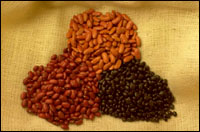 – Following a high fiber diet can also reduce a person’s cholesterol levels.
– Following a high fiber diet can also reduce a person’s cholesterol levels. However, because some fibers have a greater effect than others it is always worth seeking the advice of your doctor before making any solid changes, says the Colorado State University
- Physical Exercise – Increasing the amount of physical activity undertaken can not only reduce high cholesterol, it can also help boost good cholesterol levels (HDL cholesterol levels).
- Fish Oil – Omega-3, a vitamin most commonly found in oily fish, is known reduce cholesterol. Omega-3 can also help stabilize heart rhythm and helps a person’s blood to clot effectively.
- Plant Sterols – According to the Mayo Clinic it is believed that an individual who consumes around 2-grams of plant sterols, a particular compound found in certain plants and vegetables, can help reduce their LDL cholesterol level by as much as 15 percent.
While plant sterols are naturally found in plants and vegetables, they are also added to certain foods so it is always worth checking the packaging of any food you may buy.
Plant sterols are not a substitute for a regular healthy diet, nor do they replace any cholesterol-lowering medication the person may be taking.
However, for Some, Cholesterol Medication May Be The Way Forward
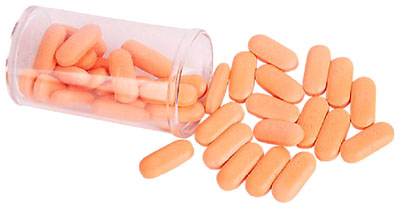 According to the American Heart Association, for individuals who have high cholesterol, certain medications may well be the only way they can bring their cholesterol to within an acceptable range.
According to the American Heart Association, for individuals who have high cholesterol, certain medications may well be the only way they can bring their cholesterol to within an acceptable range.
The most common cholesterol medication is called statins, which not only help reduce cholesterol they also help the body increase good cholesterol levels too.
You may be considered for cholesterol medication if at least one of the following is true:
- You have been diagnosed with coronary heart disease and your good cholesterol levels are low.
- You have been on a strict diet and exercise regime for at least three months and have not seen any improvement in your cholesterol level.
- Your doctor may also decide to start you on medication straight away if you have coronary heart disease in your family, diabetes, high blood pressure or you have suffered a stroke.
Individuals who have an extremely high cholesterol level may also be prescribed medication straight away in order to bring their LDL cholesterol level back within an acceptable range.
The Mayo Clinic notes that a doctor or specialist will never prescribe medication instead of dietary changes and exercise. It is normal for individuals taking cholesterol medication to follow a specialist diet, so they increase their chances of improving good cholesterol levels.
But Prevention Is Always Better than the Cure
As with most things in life, preventing high cholesterol is easier than trying to manage it.
According to the American Heart Association, most people can prevent high cholesterol by making a number of lifestyle changes including:
- Maintaining a healthy weight – this may include following a specialist diet and organized exercise routine.
- Stopping smoking – many people do not realise that smoking can slow down the production of good cholesterol levels therefore increasing a person’s chances of heart and lung function conditions.
- Reducing fats in your diet – Do not assume that all the food you include in your diet is okay for people watching their cholesterol levels. Reducing trans and saturated fat will help you maintain your good cholesterol and help with your weight loss too.
What Would You Like to Read Now?
LDL HDL Cholesterol Chart with Cholesterol Numbers for Good Cholesterol Levels
Guide to Understanding Cholesterol Numbers, the Healthy Cholesterol Ratio and How to Read a Cholesterol Chart
Understanding Normal Cholesterol Levels and Cholesterol Numbers: Tips to a Cholesterol and Triglyceride Lowering Diet
Go to the top of this article about Good Cholesterol Levels
Go to the homepage Cholesterol Lowering Foods





